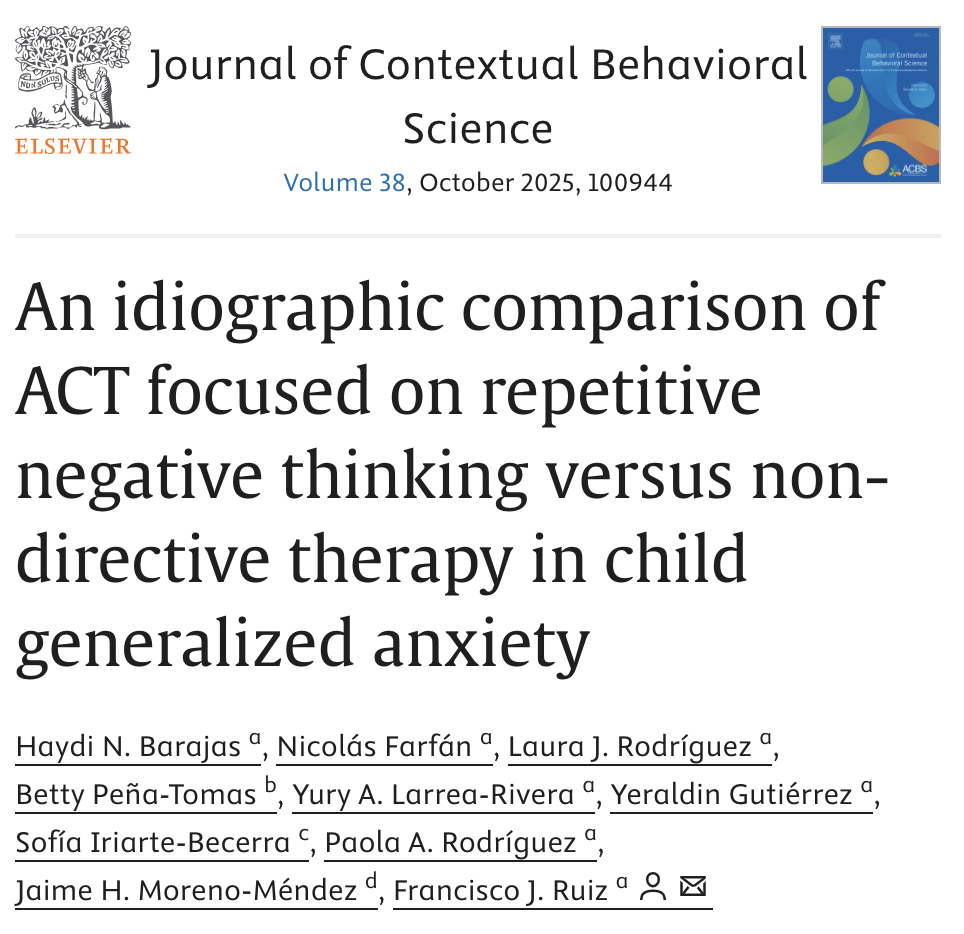Journal of Contextual Behavioral Science (JCBS)
Volume 38, October 2025
Authors
Haydi N. Barajas, Nicolás Farfán, Laura J. Rodríguez, Betty Peña-Tomas, Yury A. Larrea-Rivera, Yeraldin Gutiérrez, Sofía Iriarte-Becerra, Paola A. Rodríguez, Jaime H. Moreno-Méndez, & Francisco J. Ruiz
Key Findings
- Comparison of the effect of RNT-focused ACT and NDT in childhood GAD.
- RNT-focused ACT was more effective than NDT in children's and parents' reports.
- Null effect of NDT according to children's reports and small effect according to their parents.
- Decreasing worry mediated the effect of RNT-focused ACT in reducing emotional symptoms.
Abstract
Anxiety disorders are common among children, with generalized anxiety disorder (GAD) being one of the most prevalent. Cognitive-behavioral therapy (CBT) has demonstrated efficacy in treating these disorders, but there is still room for improvement. Notably, the most extensively tested CBT intervention is only slightly more efficacious than non-directive therapy (NDT), which is often used as a psychological placebo intervention. Acceptance and commitment therapy (ACT) is an alternative to CBT and is gaining traction as a viable treatment for childhood anxiety disorders. Specifically, a version of ACT that integrates relational frame theory (RFT) in greater depth and targets repetitive negative thinking (RNT) appears particularly suited for addressing GAD in children. This study conducted an idiographic comparison of RNT-focused ACT versus NDT for treating GAD in children aged 8–12 years. The research employed a randomized, two-sample, multiple-baseline design with 17 participants. The interventions were delivered via videoconference and consisted of three 45-min sessions. The results indicated that participants who received the RNT-focused ACT protocol demonstrated greater improvements in emotional symptoms and pathological worry than those who received NDT, as reported by parents and children. The reduction of worry mediated the effect of the RNT-focused ACT intervention for all participants, according to their parents’ reports. In conclusion, brief RNT-focused ACT interventions are promising for treating GAD in children.
